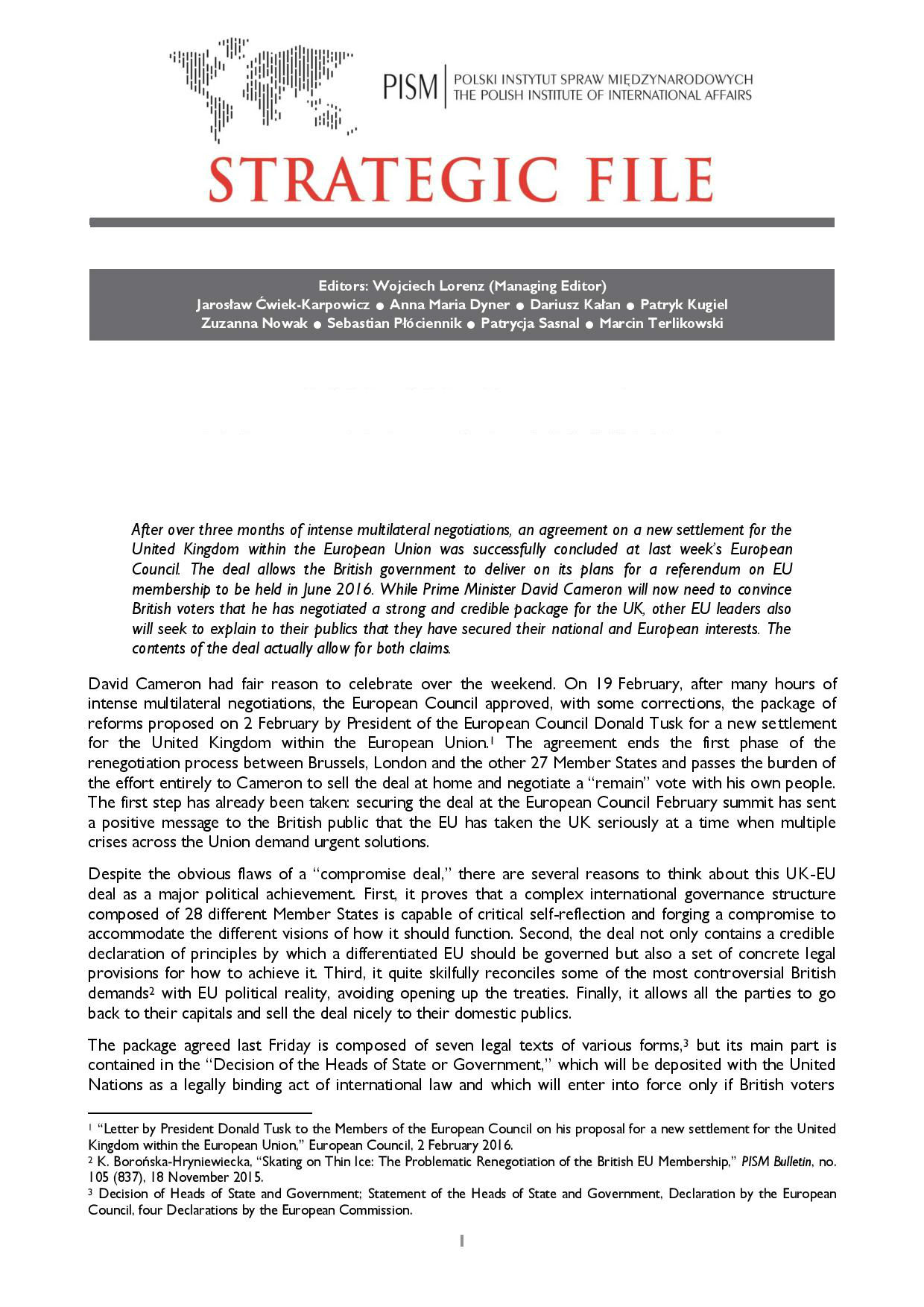The Muslim Brotherhood in a Post-Dictator Reality
The Muslim Brotherhood in a Post-Dictator Reality
Author(s): Patrycja Sasnal, Kacper RękawekSubject(s): Politics / Political Sciences
Published by: PISM Polski Instytut Spraw Międzynarodowych
Summary/Abstract: The Muslim Brotherhood (MB) is one of the main beneficiaries of the socio-political changes in the Arab world. Its pragmatic Islamism is gaining widespread popularity in the region, as expressed at the ballot box as parties either formed by the Brotherhood itself (such as the Egyptian Freedom and Justice Party) or inspired by it (such as the Tunisian Ennahda) dominate elections in the Arab world. After a turbulent history spanning almost 90 years, the Brotherhood is finally becoming a force in the world of political power. Such an advance offers a unique chance for the organisation, which in effect functions mostly as a confederated alliance of social movements operating in different Middle Eastern and North African countries, to develop and grow. However, it also carries risks associated with newly gained political responsibility, and the need to strike a balance between some of its members’ and followers’ cultural, economic, political and social expectations and the extent to which these could be addressed and fulfilled by, for example, the Brotherhood-dominated government of Egypt. Nonetheless, the Brotherhood is not the only Middle Eastern political actor facing a rather uncertain future. Its growth and successes are studied with varying degrees of support in other Arab capitals, which are yet, if at all, to witness their ‘Arab Springs’. Moreover, the previously vilified and ostracised Brotherhood, which already constitutes a successful model of a long-term, strategic, pragmatic and determined political project in a hostile environment, has witnessed a transformation of its political standing in the world. The movement’s sudden and unexpected rise to political power in 2011 and 2012 forced all of the regional and global powers to revise their attitudes towards and relations with the previously dreaded Brotherhood. At the same time, it is worth remembering the fact that the Muslim Brotherhood is neither a unitary nor unified socio-political entity. Its territorial or indeed national factions function along different lines and, despite professing adherence to the original Egyptian Brotherhood’s Islamism, utilise a variety of tactics in their struggles for political power. Consequently, the Brotherhood’s new Western partners should differentiate between their levels of engagement with its respective factions, which each find themselves at different levels of political development and evolution.
Journal: PISM Strategic Files
- Issue Year: 2012
- Issue No: 19
- Page Range: 1-4
- Page Count: 4
- Language: English

